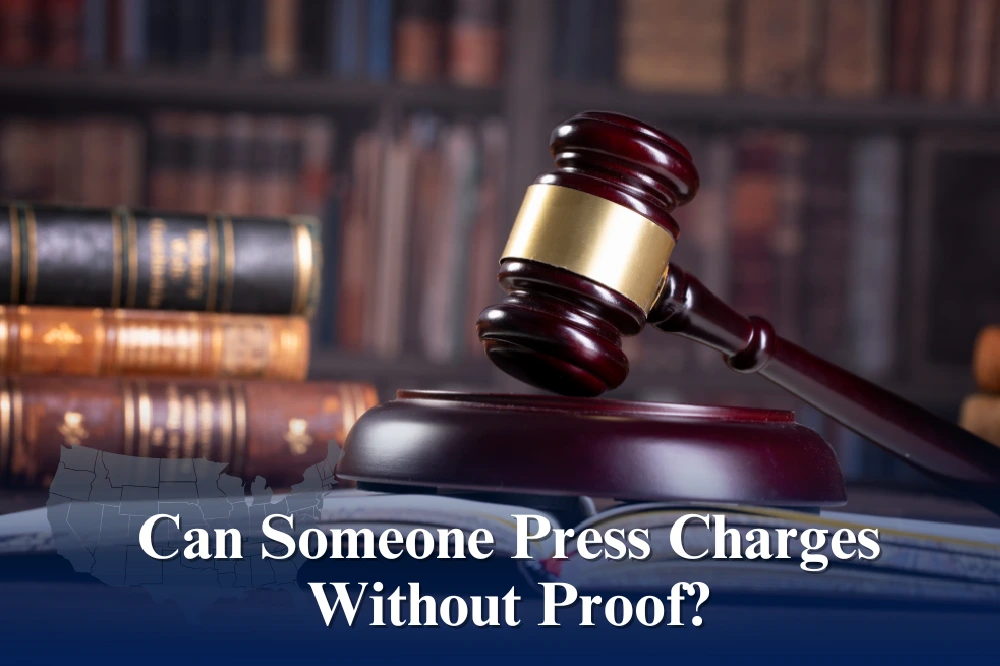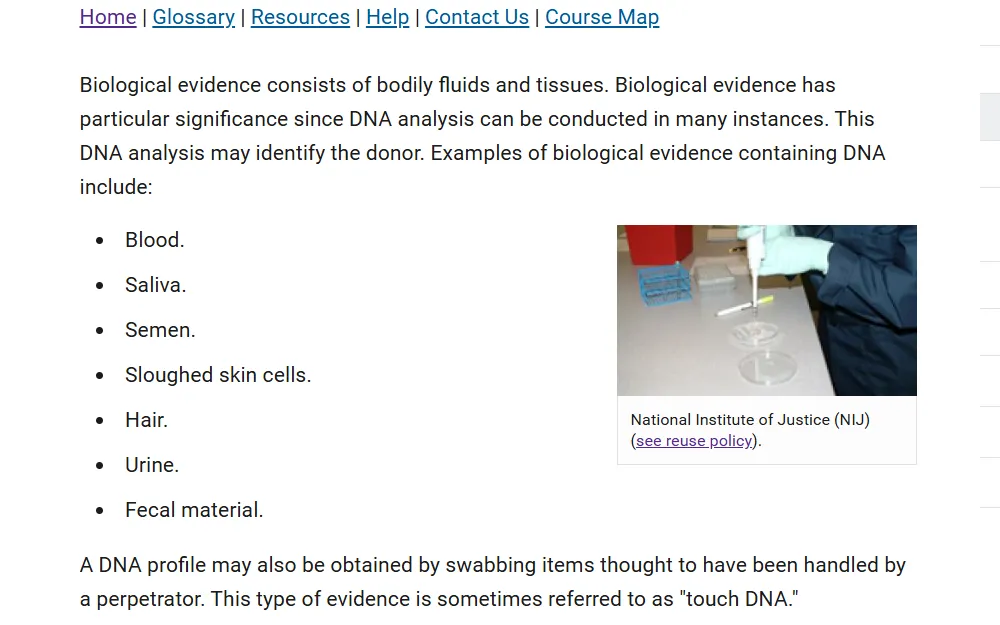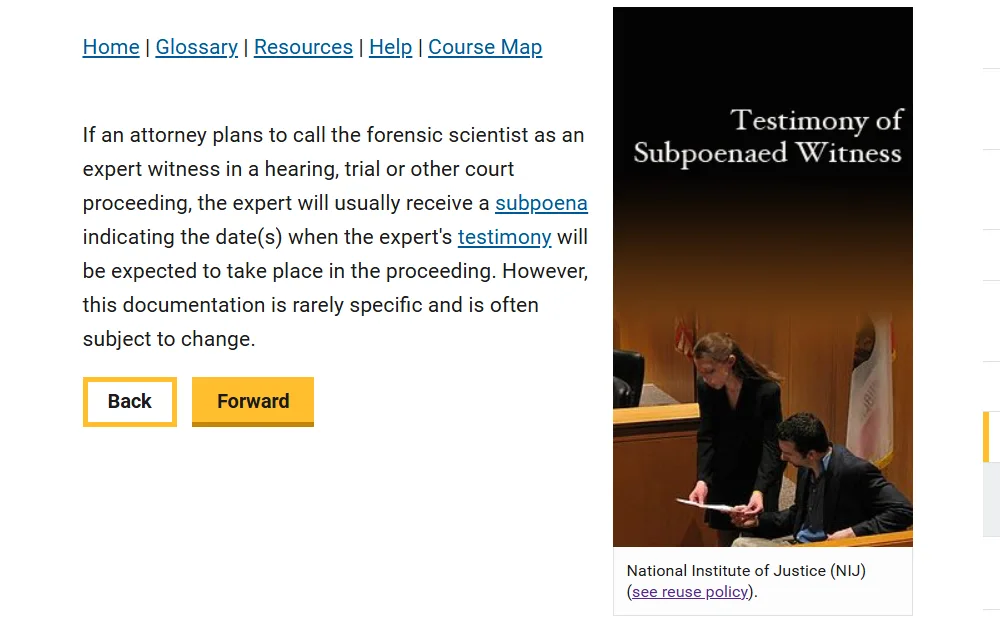
Whether or not someone can press charges without proof is commonly asked, and the answer is yes, it’s possible – but there are some crucial details to be aware of.
While physical evidence is important in legal cases, there are times where it isn’t required to press charges. In these cases, other factors — like witness statements, circumstantial evidence, or how serious the crime is — may influence whether charges are filed.
This brief article walks you through what happens when charges are pressed without evidence and why having legal assistance throughout the process is important.
Pressing Charges: What It Means & How the Process Works
“Pressing charges” generally refers to the act of filing an official complaint against someone who committed a criminal offense. This is different from filing a lawsuit for civil cases, which involves conflict over contracts, properties, or other non-criminal matters.
It’s also worthy to note that filing a police report is different from filing a criminal complaint; a police report is simply reporting an incident to law enforcement.
In the U.S., prosecutors (in each jurisdiction) are the ones who press charges.1 Only certain states, under specific circumstances, allow private citizens to do so.
For example, the state of Massachusetts allows their individuals to file criminal complaints.2 However, before the other party is charged, both the plaintiff and defendant must attend a clerk magistrate hearing first.
What’s more common is for victims or private citizens to file a report. This report will be investigated by the police who will then arrest the offender if there’s probable cause. Then, that’s only the time when the prosecutor will decide whether to press charges or not.
Most of the time, charges are brought to court when there’s enough evidence to prove the crime. Otherwise, charges may be dropped or dismissed.
If this is the requirement for a strong criminal case in court, is it still possible to press charges without proof? This’ll be discussed further below.
Is It Possible To Press Charges Without Proof?
Although there’s a possibility that charges can be pressed without initial proof for criminal cases, it’s uncommon. The prosecution bears the burden of proving the defendant’s guilt with utmost certainty (beyond reasonable doubt).3, 4 Because of this, they may choose not to proceed with pressing charges if there isn’t enough evidence.
It’s different from civil cases where lawsuits can be filed by the plaintiff without initial evidence. Of course, you’d still need it during the legal proceedings if you want to pursue the case but with a lower burden of proof.
There are different types of evidence that are reviewed in court.5
Direct evidence supports the facts of the event and directly relates the person to the crime. It can either be physical evidence (like video recording) or an eyewitness testimony.6

Circumstantial evidence gives us reason to draw inferences to support the facts. This can also be witness testimony (about the events surrounding the matter) or physical evidence (DNA, objects from the crime scene, forensic documents, etc.).7
What If Evidence Is Missing? (Pressing Charges With Only Testimony)
As previously discussed, testimonials are also considered as evidence. Charges can still be pressed in this case. However, since witness testimonies and victim statements are more subjective, it’ll be hard to pursue the case without physical evidence.
Without physical evidence, it’s also more likely for the defense to discredit the testimony and argue that the case isn’t proven beyond reasonable doubt — the legal standard of proof required by law for criminal cases.
In similar situations where the case relies only on testimony, outcomes can vary on its strength.
A weak testimony can lead to dismissal of charges — done by a prosecutor or judge. A not guilty verdict is also a possible outcome when a testimony isn’t convincing enough. It may not meet the requirements for the legal standard of proof.
Negotiating plea deals are also an option and happen when the prosecution feels they have a weak case. This can ensure conviction without proceeding with the trial. A mistrial can also result from a weak case where the jury can’t reach a verdict.8
However, there are times when a testimony is enough to meet the legal standards of proof and cause the judge to reach a guilty verdict.
- Credible Witness: Eyewitness or victim testimonies are clear, detailed, and consistent.
- Corroborating Testimonies: Testimonies of multiple witnesses check out with each other and are consistent.
- Confessions: Confessions of the crime made by the defendant or incriminating statements (that are testified to in court).
- Expert Testimonies: Testimony from subject matter experts (like forensic scientists) that support other testimonies or circumstantial evidence in court.9
- Severity of the Offense: Physical evidence may lack in some cases, such as homicide or sexual assault. Due to this tendency and the severity of the case, testimonies from the victims or eyewitness bear great weight as well.
In these situations, testimonies can be considered strong evidence even without physical evidence.

On the other hand, pressing charges without proof may come with consequences if done with malicious intent or without basis. For instance, false claims are punishable by perjury which can lead to charges, fines, or even conviction.10 Civil lawsuits may also be filed for defamation if the baseless charges that were pressed damaged the reputation of the defendant.
Also, if the charges turn out to be baseless or false, it could damage the plaintiff’s credibility in future legal matters. That’s why it’s important to make sure the charges are real, even without all the evidence at hand at the time of the filing.
For individuals who had charges pressed against them without proof or would like to file one, the next section focuses on the importance of legal help and how they can assist during the process.
Importance of Legal Assistance
If you’re facing charges without proof as a defendant, it’s important that you have an attorney to help you. A good lawyer knows the law and how the system works so they can guide you in resolving this conflict.
They look at how strong the case is, advise you on potential outcomes, and help find supporting evidence or case facts that shows you’re not guilty. Additionally, an experienced attorney can challenge weak or unsupported claims, strengthening your defense and increasing your chances of a favorable result.
An attorney would be equally beneficial if you’re the plaintiff. They can help you gather more evidence, present case precedents, and ensure that the legal procedures are followed. This can make your case stronger and increase your chances of winning.
To wrap it up, the question of whether someone can press charges without proof may seem complicated, but it’s possible in certain situations; whether you’re defending yourself or bringing charges, knowing your rights, the laws, and having legal assistance will greatly help if charges are pressed without concrete evidence.
References
1U.S. Department of Justice, Office for United States Attorneys. (n.d.). Charging. Retrieved January 2, 2025, from <https://www.justice.gov/usao/justice-101/charging>
2Commonwealth of Massachusetts. (n.d.). File A Criminal Complaint. Retrieved January 2, 2025, from <https://www.mass.gov/how-to/file-a-criminal-complaint>
3United States Courts. (n.d.). Criminal Cases. Retrieved January 2, 2025, from <https://www.uscourts.gov/about-federal-courts/types-cases/criminal-cases>
4Legal Information Institute (LII). (2020, May). Beyond A Reasonable Doubt. Retrieved January 2, 2025, from <https://www.law.cornell.edu/wex/beyond_a_reasonable_doubt>
5U.S. Department of Justice, Office for United States Attorneys. (n.d.). Investigation. Retrieved January 2, 2025, from <https://www.justice.gov/usao/justice-101/investigation>
6National Institute of Justice (NIJ). (2023, June 15). Crime Scene and DNA Basics for Forensic Analysts. Retrieved January 2, 2025, from <https://nij.ojp.gov/nij-hosted-online-training-courses/crime-scene-and-dna-basics-forensic-analysts/evidence-crime-scene/types-evidence>
7National Institute of Justice (NIJ). (2023, June 7). Biological Evidence. Retrieved January 2, 2025, from <https://nij.ojp.gov/nij-hosted-online-training-courses/collecting-dna-evidence-at-property-crime-scenes/types-of-evidence/biological-evidence>
8Legal Information Institute (LII). (2023, July). Mistrial. Retrieved January 2, 2025, from <https://www.law.cornell.edu/wex/mistrial>
9National Institute of Justice (NIJ). (2023, August 7). Law 101: Legal Guide for the Forensic Expert – Testimony of Subpoenaed Witness. Retrieved January 2, 2025, from <https://nij.ojp.gov/nij-hosted-online-training-courses/law-101-legal-guide-forensic-expert/general-testifying-tips/testimony-subpoenaed-witness>
10U.S. Department of Justice, Office of Justice Programs. (1980). Perjury. Retrieved January 2, 2025, from <https://www.ojp.gov/ncjrs/virtual-library/abstracts/perjury>
